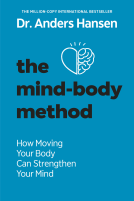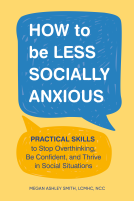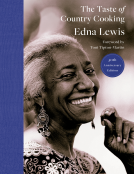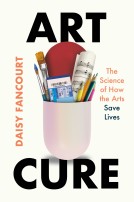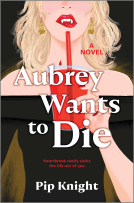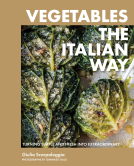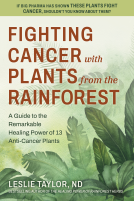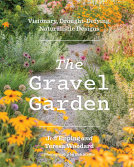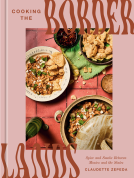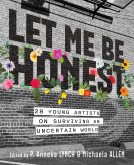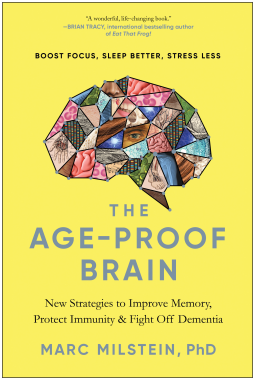
The Age-Proof Brain
New Strategies to Improve Memory, Protect Immunity, and Fight Off Dementia
by Marc Milstein, PhD
This title was previously available on NetGalley and is now archived.
Send NetGalley books directly to your Kindle or Kindle app
1
To read on a Kindle or Kindle app, please add kindle@netgalley.com as an approved email address to receive files in your Amazon account. Click here for step-by-step instructions.
2
Also find your Kindle email address within your Amazon account, and enter it here.
Pub Date Oct 25 2022 | Archive Date Jan 13 2023
Talking about this book? Use #TheAgeProofBrain #NetGalley. More hashtag tips!
Description
—Dr. James B. Maas, Weiss Presidential Fellow, former professor and chair of psychology, Cornell University
“A wonderful, life-changing book.”
—Brian Tracy, international bestselling author of Eat That Frog!
Serious mental decline is not an inevitable part of aging. You can boost your short and long-term brain health and significantly lower the risk of dementia—if the right steps are taken now.
Fifty million people have dementia worldwide, but it doesn’t have to be that way. We—not our genes—can control our cognitive destiny. Serious mental decline is not an inevitable part of aging. You can boost your short- and long-term brain health and significantly lower the risk of dementia—if the right steps are taken now.
In The Age-Proof Brain, scientist and popular speaker Dr. Marc Milstein reveals the secrets to improving brain function, which lie in the brain’s surprising connection with the rest of the body. Debunking common misinformation, he offers science-driven strategies in an entertaining, motivating, and easy-to-follow guide to:
- Improve memory and productivity
- Increase energy and boost your mood
- Reduce the risk of anxiety and depression
- Form healthy habits to supercharge your brain
- Prevent nongenetic Alzheimer’s and dementia
Dr. Milstein arms you with knowledge about common and often overlooked issues that prematurely age the brain (including the surprising truth about what doctors previously got wrong about Alzheimer’s and dementia), and shares a seven-day challenge to help you jump-start new brain-healthy habits. Small changes can make a big difference right away.
The Age-Proof Brain will provide the tools you need to ensure that you’re living a happier and more fulfilling life—today, tomorrow, and well into your future.
Average rating from 8 members
Featured Reviews
 Media/Journalist 4920
Media/Journalist 4920
An excellent addition to anyone's aging well arsenal.
I read few non-fiction books where I learn something new, especially in the real of health, medicine or wellness. That's not because I'm a doctor, or have any formal medical training, but because I've read thousands of medical and health -related books and textbooks over the last three decades of my life.
Ever since my teens, when someone near and dear to me passed away, I was in awe of the medical profession, and how I could better inform myself to prepare for life's ups and downs. Then, I was diagnosed with depression, and finally, an autoimmune disorder, so I decided to get my counselling designation, to see if I could help others come to terms with life's ups and downs, too.
While I've focused more on mental health in my writing and journalistic endeavours, I've always found brain health deeply intertwined with mental health -- so there are more than a few books like, "The Age-Proof Brain," on my nightstand. However, as I shared early in this review, few taught me anything new, or provided new insight that I could immediately put into practice.
Dr. Milstein has a storyteller's gift, and alongside their medical knowledge and experience, references studies (I'd yet to have heard of), effortlessly and gracefully. While the nuggets I gleaned were more useful as I moved through the book, and the storytelling stronger and more pervasive at the start, I found myself reading late into the night on several occasions - against the advice of the book. I just couldn't put it down, and for me, that's rare.
There's little I can find fault with in the book. I'd have loved a printable worksheet or checklist as some form of addendum, to take with me and review on a daily/weekly basis, but now I'm nitpicking. Highly recommended.
 Linda S, Librarian
Linda S, Librarian
THE AGE-PROOF BRAIN by Marc Milstein offers "New Strategies to Improve Memory, Protect Immunity, and Fight Off Dementia." Milstein, educated at UCLA, is a knowledgeable presenter, including press and television interviews, regarding brain health. His new text is easy to follow and offers numerous suggestions, particularly that "learning new information or a new skill keeps your brain young." The book has three primary parts: the first several chapters explain how the brain and memory works as well as connections to the gut and heart; the second part reviews issues (memory loss, insulin resistance, inflammation, and mental health) associated with the brain and aging; the third part is filled with steps to take related to sleep, stress, exercise, community, nutrition, environment, and cross-training (developing different skills). Whether or not all of his information is truly "new" to you, Milstein's appendix even includes a seven day plan with very specific examples which should be useful to everyone seeking to develop or reinforce healthy habits. For a related text and additional resources, see also Dotson's Keep your Wits About You.
 Reviewer 1089643
Reviewer 1089643
An engaging and often humorous science-based perspective on brain aging and what we can do about it.
The author draws on a broad array of research, including a number of recent studies. This allows the reader to understand some details about specific research projects and get a sense of how certain findings are landed upon. Yet, relying on one-off studies is not ideal. I would've preferred that the author cited more systematic review work and chose one or two examples to highlight why there is (or isn't) consensus on this or that. A lot of the conclusions and suggestions otherwise feel a bit shaky. I'm not an expert in this area, so I suspect that there's more work out there, and the author has simply cherry-picked the best or newest or most interesting (or most familiar) of the bunch. A general science reader might not mind, but skeptical sorts and other researchers outside of these fields of study may expect more (I certainly do).
I'm also a bit frustrated that the author conflates sex/gender and speaks within the binary. Much recent work, popular and otherwise, has raised this issue for medical science specifically. We need to start being more rigorous about whether we're talking about biology or about the social side, or both. I have no idea (and to be fair perhaps the author didn't either, given the state of reporting on sex/gender in medical research) whether the research referred to female bodies or men's minds or a lifetime of certain hormones etc. Intersex and genderful folk are conspicuously absent, as well.
The writing is otherwise excellent and jovial. This is honestly one of the easiest-to-read science books I've come across in a long time. I appreciated the call-outs with more details and extra bits. And I really appreciated that the author cites sources in-text, although, as mentioned, I wish that there had been more sources cited, especially systematic reviews. I also wish there had been a lay person pronunciation guide. "Cyto-plasma-endo-citric-whata?" The author asks us to remember these terms and watch out for a lot of sneaky tricks in labels and descriptions when it comes to product marketing, but how can we? Oddly, given the chapter on memory, the author knows how hard it is for a lay person to remember such jargon. Why not put your own strategies into practice, especially in the same book? I would've liked to see a mnemonic or funny idea to help us remember terms we need to remember.
The author provides a week-long holistic guide for trying out all of the strategies and lifestyle choices to improve brain health and stave off dementia. I'm actually excited to try this out. Again, I find myself really appreciating the "how" of writing, the formatting and structure of the materials. Still, I was irked by how vegan and vegetarian diets were framed. The author overstates the warnings and difficulty about getting certain vitamins, notably omega-3, and completely misses discussing the bigger issues with these diets, namely iron and B12. By the way, a lot of vegan sources for omega-3 are missed, such as hemp seed, nutritional yeast, and seaweed. Also, this really highlighted for me how this is very much a book by an American for Americans. Most of the ingredients and recipes are nigh impossible for someone living in, say, Japan, or at least really expensive and inconvenient. The research cited seems to be by or for WEIRD (Western, Educated, Industrial, Rich, Democratic) populations, as well. (To be fair, most English work is.) I'm left wondering what I can do, not only as a vegan/vegetarian, but as someone not living in the states or even in "the West." By the way, dementia is a massive problem in Asia and there's a lot of critical work being undertaken in Japan. Maybe someone should write a book about that ... or at least include it.
I do appreciate that the author calls out the well-being research (I almost wrote "research") sector and industries, while also citing the good that gets tossed in with the bad in these domains. One thing that niggles me: the author seems to be trying to make a career out of being a science-based well-being guru at the moment. Let's not forget the notorious Drs. Oz, Wakefield, and others who seemed legit and did some things right, only to turn out very wrong in the end ... but a lot of people still listened to them, because they have the "doctor" identity attached to them. I wonder if one can make waves in a toxic and quackery-filled space like the well-being industry. I wish the author the best on this. Just be sure to stay with us on the light side of the force.
Readers who liked this book also liked:
L.M Montgomery
Children's Fiction, Comics, Graphic Novels, Manga, Teens & YA
Megan Ashley Smith, LCMHC, NCC
Health, Mind & Body, Nonfiction (Adult), Self-Help
Lauren Springer; Bryan Fischer
Crafts & Hobbies, Home & Garden, Nonfiction (Adult)
Michaela Allen and P. Anneka Lynch
Biographies & Memoirs, Health, Mind & Body, Teens & YA

